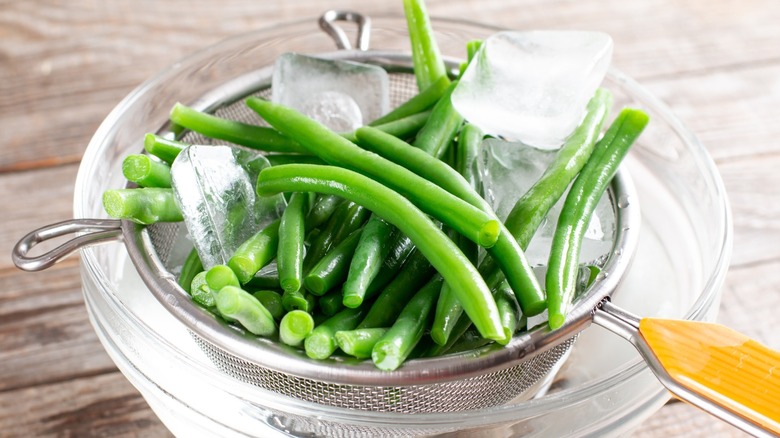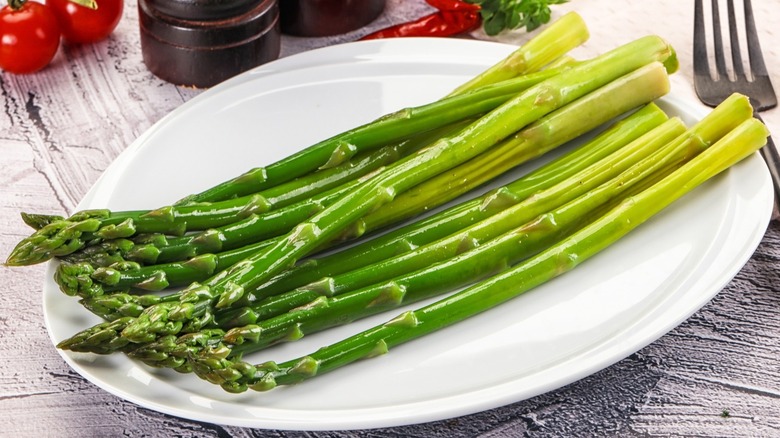The Crucial Step To Take Right After Blanching Vegetables
You've all heard about blanching, it's one of those simple yet powerful culinary techniques that can completely elevate your cooking. Blanching involves briefly submerging fruits and vegetables in boiling water, then quickly cooling them to stop further cooking. This process preserves the bright colors, crisp texture, and fresh flavors of produce by deactivating enzymes that cause spoilage. Blanched veggies, like vibrant green beans or bright baby carrots, stay crisp and fresh without being raw, limp, or mushy. It's an excellent way to make vegetables more appealing and delicious while also extending their shelf life.
Little do many people know that blanching alone isn't enough to preserve the glorious, pristine, and supple look of your vegetables, and the steps that follow are just as crucial. While the well-known method of immediately giving your blanched vegetables an ice water bath helps lock in their vibrant color and crispness by pulling the heat away and halting the cooking process, there's an additional step that can make all the difference. Coating the vegetables with a light layer of oil is a simple yet transformative technique that will keep them wrinkle-free and help them last longer.
Oil coating: the key to preserve fresh, flavorful vegetables
As food scientist and author Harold McGee told Buzzfeed, when vegetables are hot after boiling, they release steam, which means they're losing moisture. To keep them from drying out and getting wrinkly, the best approach is to coat them with a little bit of fat such as oil or butter. The fat creates a barrier that locks in their moisture and preserves their freshness. Different oils serve different purposes. In this case, a more neutral option, such as canola oil, grapeseed oil, or avocado oil, may be best to avoid overpowering the natural flavor of the vegetables. The choice of oil also depends on how you plan to use the vegetables.
Coating vegetables in oil is ideal if you plan to freeze them, as it helps prevent freezer burn while preserving their texture and flavor. It also saves cooking time later, allowing you to reduce or even skip the oil when stir-frying, grilling, or roasting. This method can also enhance any quick lunch salad. While microwaving vegetables is a fast option, especially for an office lunch or a workday lunch at home, a little prep the night before–blanching and oil-coating your vegetables–will yield much better results. You'll no longer need to microwave them, and the vegetables will stay fresh, look vibrant, and taste great.

